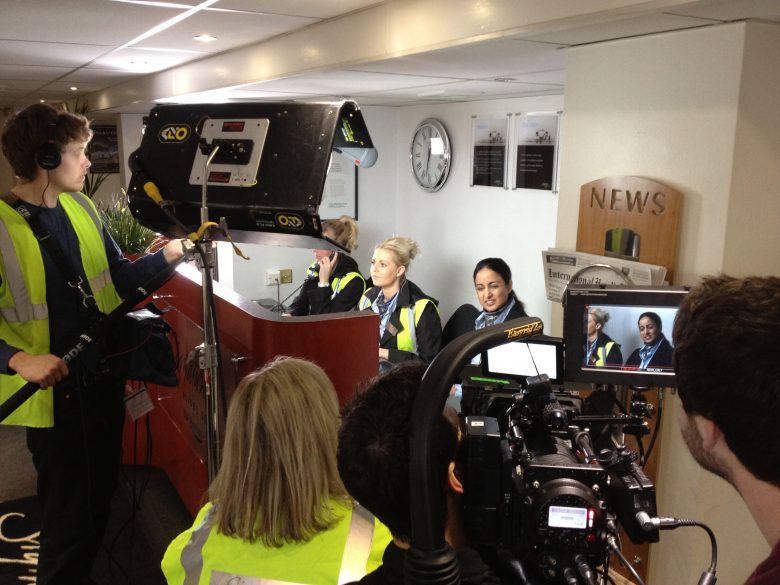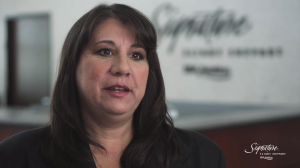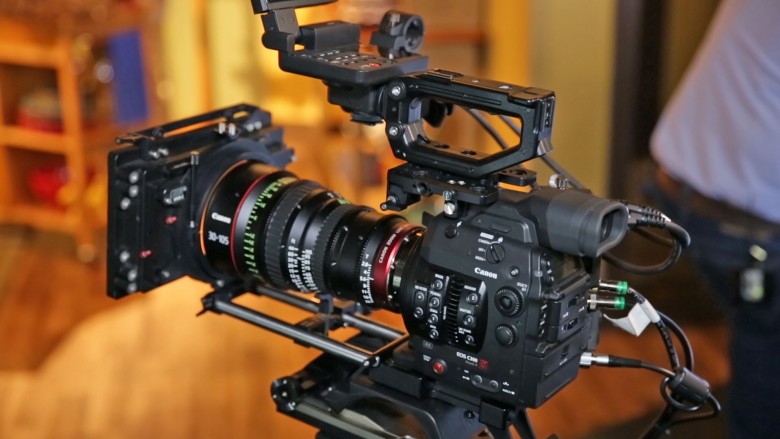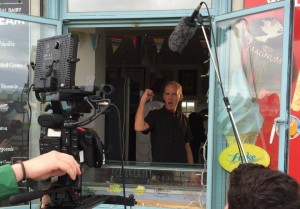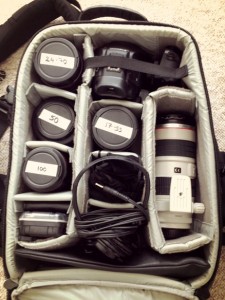Achieving the TV look on an online budget
It’s 2016 and the marketeers are telling us to invest in online video. We are hearing many reasons for this:
“It will help your SEO”
“It’s cheaper than TV advertising”
“Your audience can be targeted on their commute, at home and at work”
All very good reasons, sure. But once we have accepted that we need to invest in online video, how can we make sure that our content looks good enough to be on TV yet stays within the realms of an online budget?
Whilst anyone can in theory take out their phone, shoot a video and upload it in seconds to their website and social media channels, businesses who care about their image and production values (I imagine that’s most of us) will certainly get better value from investing in professional online video. Gone are the days of dull looking corporate videos. We’re in the age where online advertising should look as good as TV!
So, how could you get the TV look on an online budget?
Through utilising cost effective technology.
One of the major benefits of opting for online content rather than broadcast media is that the fast moving digital landscape is allowing technology to be more affordable than ever before. You’ll have already experienced it with your electronic devices at home and the same applies in the video production industry. Cameras that produce beautiful images fit for broadcast are now within reach. As a result we use everything from larger cinema cameras to tiny DSLRs to portray your business in the best light. To keep things economical we buy some of the equipment outright whereas other bits are more cost effective to hire. This ensures that we can provide quality equipment all year round and still have access to anything specialist or brand spanking new when you need it, getting the best of both worlds.
Another example is in the aerial photography world. As HD cameras have gotten smaller they have been easier to attach to UAVs – aka drones! Only a few years ago aerial photography was too expensive a venture for most businesses; drones are obviously much more cost effective than helicopters!
If you have an interest in tech then you might like this article on how to choose the right camera.
It’s not just the camera: lighting & sound are important too.
One of the cons of this technology becoming affordable is that suddenly everybody considers themselves a Video Producer. Some think they can just buy an HD camera and become a professional without considering other areas of video production. What contributes immensely to creating a high value production or the ‘TV look’ is lighting and sound and at flyCreative we respect that. Just because you may be considering a less expensive option that doesn’t mean your product should be cheap!
A little bit more on lighting:
Only fairly recently have many cameras started to become good in low light conditions. However despite this, even big TV programmes today still require the use of lighting rigs. Next time you are watching X Factor take a look at the background of the wide shots. You’ll often see a large film light of some sort. Apart from being able to see the subjects, lighting is used to make people look good! Don’t you want your business to look good?
With an untrained eye it can be easy to accept a TV image as ‘real life’. Trust us though, you’ll notice the lighting when it’s gone. Or if it’s bad!
Music to the ears:
The other half of achieving the TV look is through getting good sound. When it’s not good you’ll notice it and will wish that you’d hired a professional. To maintain TV production values on an online budget we also take our sound very seriously, using broadcast quality microphones and recorders to ensure clarity and noiseless recordings. Some projects require their own sound recordist, just as in TV.
As online productions are usually smaller in scale than big TV shows, there is less of a requirement for large lighting rigs, mixing desks and huge teams of personnel which can add substantially to the cost of a production. Portable lighting kits, solo sound engineers and self shooting producers are more widely used than ever before. The number of crew required will depend on your individual requirements, but generally speaking the crews are small for online content.
Through planning and creativity, except you are in control.
Creating content for broadcast can sometimes be a little restricting. All of the major broadcasters such as ITV and SKY have strict broadcast guidelines regarding what can be considered ‘fit for broadcast’. Whilst legal issues such as libel, defamation and copyright breaches aren’t exactly blown under the carpet when it comes to producing online, the truth is by not having so many restrictions and guidelines to meet you can effectively have a lot more freedom when it comes to the kind of content you want to produce, how long that content should be and when you want to release it. With broadcast advertising you may also be competing with many other organisations, all after the same airtime. This can once again hike up the cost. Obviously, to get the most engagement from online distribution you should have a well informed social media and marketing strategy in place.
The beauty of having freedom to create whatever you want (within reason!) means that it’s easier to innovate and choose an idea that hasn’t been done before. This can increase the likelihood of your content being shared and for some, can even mean going viral. Remember, it has been accessibility to content on social media that has helped many adverts (that were originally made for broadcast) go viral. Do you think the Old Spice adverts would have had as much success if they weren’t shared on social media?
Need some inspiration? Take a look at this promo for Virgin Holidays where we got a bit creative. Cinematic slow motion cameras were used to capture members of Cirque du Soleil performing acrobatics on the streets of London.
http://mustard.education/portfolio/virgin-holidays/
The finishing touches to the TV look: post production.
To get the TV look it’s not just about the shoot itself but what we do to the footage afterwards. Colour grading, as part of the editing process, is used to enhance the images so that they help evoke a certain emotion from the audience. This can make your brand stand out from the crowd. Once this is done titles, text, motion graphics and animation can be added to further enhance the production.
The video below is a good example of how a project was really brought to life through post production. Not only did we shoot a range of material to promote London in the summer through the use of steadicams, drones and slow motion filming, but we added warm flashes of colour throughout to give off a summer flavour and produced some small animations along with the text. There’s a lot going on here and it certainly looks fit for TV.
http://mustard.education/portfolio/visit-london-summer-in-the-city/
Don’t forget..optimise your content for your chosen demographic!
Just because you’ve got your content looking like it should be on the telly you must not forget one of the key reasons for choosing to advertise online in the first place. Your creative freedom and a flexible online budget can allow you to customise your content for particular audiences; from simply adjusting the title cards for each audience to creating specific ads for each demographic. Once again, timing of release is crucial here too. What time of day are your customers most likely to be online? With so many options available, it’s down to you to decide what you would like and we will help you realise your vision.
And another thing..
The recurring theme here and the key difference between producing content for TV and online is the scale. Whilst there are many technological savings to be made and in ways a lot more freedom to produce the content you want for online, you will still have to consider the scale of your production. Hiring 50 extras to star in the background of a promo in London Victoria Station is still going to cost a fortune, regardless of whether it is for web or TV. If you are prepared to think big but balance it with realism then there is no reason why you can’t make substantial savings and still walk away with an incredible advert for your business.
To find out how we can achieve the TV look in your online production come on by and say hello!

